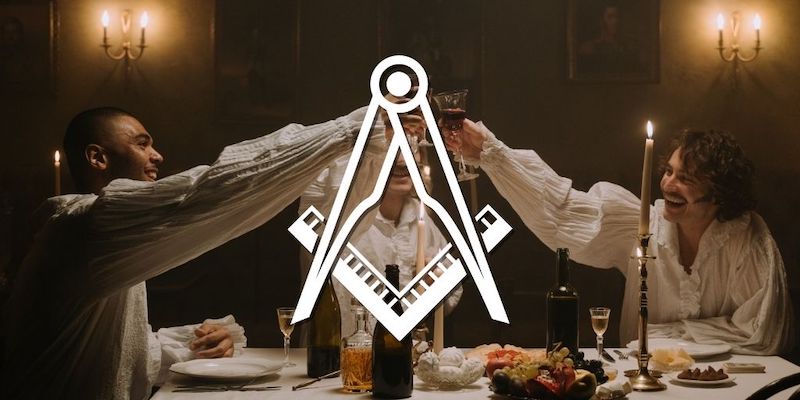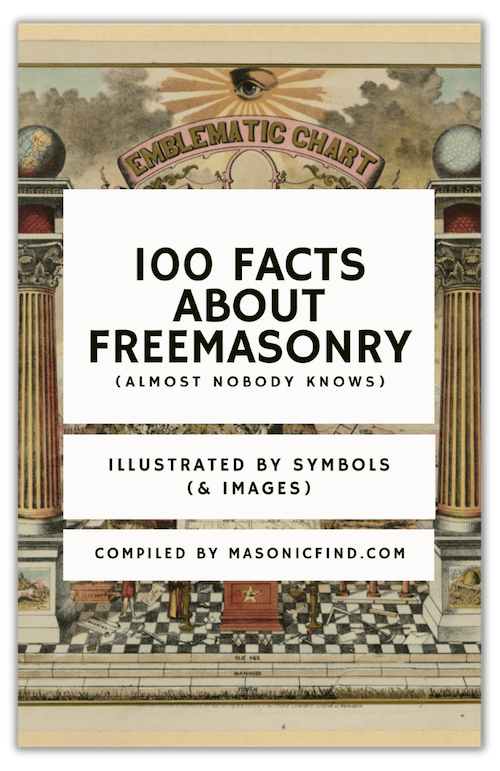Freemasons often address each other as “Brother.”
We also consider ourselves “Travelers” in a way.
What do brotherhood and travel have to do with FreeMasonry?
Masonry is a Fraternity and, frankly, a journey in and of itself.

The Masonic Brotherhood
Brotherhood is a synonym for fraternity.
We consider ourselves brothers (or brethren) because we have taken and endeavor to keep the very obligations necessary to become and remain a member of this Brotherhood.
As Dr. Albert Mackey described in his work Encyclopædia of Freemasonry, fraternal organizations in the Middle Ages adopted the term brotherhood to denote
“any association of men engaged in the same common object, governed by the same rules, and united by an identical interest.”
This describes Freemasonry to a tee; we have the same aims, our actions are regulated in accordance with the same ancient landmarks, and we are all interested in serving our respective communities.
We take our fraternal bonds quite seriously. When one becomes a Mason, one becomes a part of a global family built on similar values.
Masonic “Travel”
In our respective rituals, it is often stated that we are traveling in search of light (light here being symbolic for knowledge).
In the above-mentioned work, Mackey described Masonic light as “emblematic and mental illumination.”
As Masons, we seek to learn both collectively (as lodges) and individually (in all aspects of life).
In Masonry, we are taught quite a bit; our didactic ceremonies can take hours to perform. More importantly, we are encouraged as Masons to seek out learning, both for ourselves and to share with others.
If a man becomes a Master Mason, memorizes all the ritual, and even becomes the head of a grand lodge or other appendant/affiliate organization, his Masonic journey never ends.
Instead, it perseveres until he passes to the next life or unless he quits the Fraternity.
We also enjoy visiting other lodges (literal travel) for various reasons, including:
- learning what Masonry is like in other parts of the world.
- befriending distant brethren.
- broadening our horizons overall.
How Old is Your Mother?

Often, two or more Masons may randomly meet for the first time and recognize that they are brothers (for example, if one of them is wearing a Masonic ball cap; this has happened to me on more than one occasion).
A traditional question to ascertain where a Mason is from is to ask, “How old is your mother?” or “How old is your grandmother?”
The “mother” in this question is the lodge; the age in question refers to the lodge number.
If I were to respond to this question in the customary way, I would answer with something along the lines of “She is 33; she lives in Utah.”
This tells the brother that I am a member of Lodge No. 33 (which he may deduce later to be St George Lodge if he decides to look it up) in the jurisdiction of the Grand Lodge F&AM of Utah.
This question is asked often in conversations where at least one of the participants in the discussion is a Mason who literally travels and is meeting others for the first time.
As I understand it, this custom comes from a time when Masons were generally and unjustly viewed unfavorably by the community at large.
I personally very much dislike this question and its variants. That may just be because I am very open about my participation in the Craft.
There are some who keep their membership private, and I do my best to respect that. So, if someone plays that game with me, I will play along.
Conclusion
As Masons, we are expected to improve ourselves and our communities.
As we add light to our lives, we become more capable of doing so; and, in fostering our brotherly relationships, we all encourage each other in all commendable, important undertakings.
We travel to other lodges and we run into previously unknown Masons in our travels elsewhere.
Light is what we value in all aspects of life (although it is different for each person in general). We are all view and treat each other as brethren.

FREE DOWNLOAD: 100 FACTS ABOUT FREEMASONRY (ALMOST NOBODY KNOWS)
Join the 10,000+ Brethren from around the world inside our weekly Masonic newsletter and get our best selling ebook for free (usual value: $20).
This article was written for MasonicFind.com by Brandon Cole, SW.